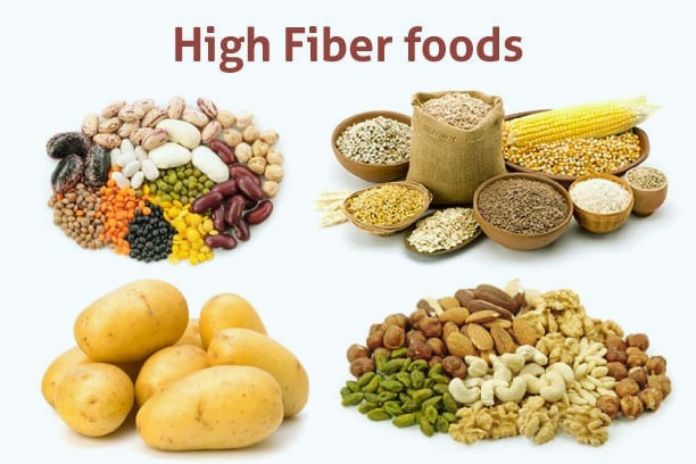Fiber-rich foods and their importance in the diet everyone knows, as they help in digestion and, therefore, in the proper functioning of the intestine.
However, the fiber-rich diet may seem like a difficult achievement, but know that it is simple.
In all food groups, some foods help prevent intestinal diseases, help fight excess weight and even allow you to regulate a lazy bowel.
We also have a wide variety of foods that support balance and the correct daily intake of vitamins and minerals. But what do all these foods have in common? Indeed you can already imagine the answer. Continue reading, and we’ll investigate the importance of consuming fiber in our diet.
Dietary Fibers – What They Are And Their Benefits
While we’re on the subject, let’s tell you all about the importance of fiber in your diet and how good it will be for you.
Understand the importance of a high-fiber diet and how to increase your daily intake.
Perhaps more than ever, your consumption of fiber-rich foods is paramount because it helps fight diseases of the fast food or fast food era.
We define dietary fiber as plant-derived substances resistant to digestion and pass relatively intact through our digestive system.
In addition to being non-caloric, they reduce the absorption of cholesterol, fats and sugars. They also cause the feeling of prolonged satiety.
Once ingested, fibers remain in the stomach along with other nutrients for a longer time, which allows you to postpone the consumption of more calories and, therefore, weight gain.
Types Of Dietary Fiber
Fibers can be divided according to their solubility. Better translated, property that has a substance to be able to dissolve in another.
So, the types of dietary fiber that support the high-fiber diet are divided into soluble and insoluble.
Indeed you must have already read something about it, but let’s go deeper into the subject to encourage its use. After all, highlighting the importance of consuming dietary fiber is the reason for this post.
Thinking about it, all knowledge is welcome and sometimes the starting point for a healthy change in eating habits.
Let’s go back to the types of dietary fibers, remembering that to maximize their benefits, it is essential to drink water, as together; they work better.
Soluble Fiber
Helps reduce cholesterol and blood glucose levels.
In what foods can we find soluble fiber?
We offer you some sources:
- Oats, barley, chia, linseed, rice bran, soy.
- Apple, lemon, banana, orange, strawberry.
- Cauliflower, potato, sweet potato, carrot.
- Beans, peas, lentils.
Insoluble Fiber
It promotes material movement through the digestive system, helping those suffering from constipation or irregular bowel movements.
Also, for the type, we indicate some suggestions:
- Wheat bran, flax seed.
- Beans, peas, chickpeas and lentils.
- Raisin, walnuts and almonds.
- Turnips and vegetables, in general.
- Fresh raspberry, unpeeled apple and strawberry.
While dietary fiber intake is essential, if you have yet to get used to ingesting it, then take it easy!
Initially, we advise you to gradually change your diet rich in dietary fiber, as the sudden increase in fiber in your diet can cause gas, cramps and even diarrhea.
Another relevant observation is that excessive cooking of fibrous foods can compromise their properties. Ah, we repeat the importance of consuming water.
More Information On The Importance Of Fiber In The Diet
To illustrate, below we list some of the benefits of including foods rich in both types of fiber.
Helps Maintain Good Intestinal Health:
A high-fiber diet can help reduce the risk of hemorrhoids and other conditions affecting everything from the intestines to the colon.
Contributes To Lower Cholesterol Levels:
Foods like beans and oats are some that, due to their high soluble fiber content, can lower the levels of the so-called “bad cholesterol” in the blood.
Helps To Achieve An Ideal Weight:
Foods that are high in dietary fiber tend to make you feel fuller for longer and have fewer cravings.
Regulates Intestinal Evacuation:
Dietary fiber is ideal for regularizing bowel movements if you have diarrhea or constipation.
The benefits that high-fiber foods can bring to our health are well known. However, remember that we must maintain a balance in our diet, as this is the best way to reach the ideal weight.
As we’ve said before, quickly adding high-fiber foods to your diet can lead to bloating and cramping, so please don’t overdo it!
Curiosity About Dietary Fiber
According to experts, it is recommended that men consume around 38 grams of fiber per day until age 50, while for women, the ideal is 25 grams daily.

